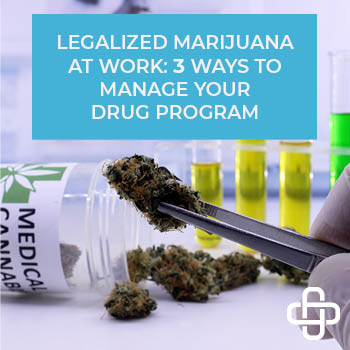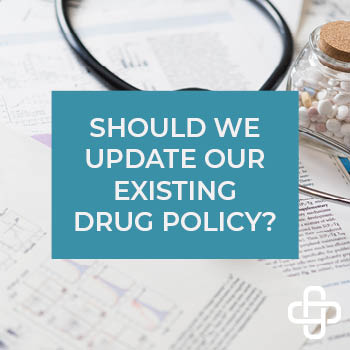
Now, medical marijuana has become the new ‘super food’ of the workplace, with laws protecting employees to stay buzzed on the job.
What does this mean for the employer, and how do they regulate workplace safety standards in this new era?
Medical Marijuana: A New Threat to the Modern Workplace
Employees who suffer from MS, seizure disorders, chronic pain or Post Traumatic Stress Disorder may get approved for a medical marijuana prescription, but how does that affect their safety on the job, not to mention their drug test results?
Within the scope of workplace safety, employers are facing a losing battle between the employees that possess a medical marijuana card, and the states that protect workers from getting fired, even if they fail their drug test.
Beginning 2018, nine states prevent employee actions against those employees who hold medical marijuana cards:
- Arizona
- Connecticut
- Delaware
- Illinois
- Maine
- Minnesota
- Nevada
- New York
- Rhode Island
The complication for employers?
While the courts at the state level has provided a ‘buffer’ for some employees by protecting them from being terminated, the law on a federal level still says pot is illegal. This requires many businesses to use a new approach to a drug-free workplace.
The problem?

- Insurance policies
- Workers’ compensation claims
- Damage to others.
These expensive, productivity-damaging issues pose a danger to their employees and the organization at large when the drug policy isn’t enforced.
Should We Update Our Existing Drug Policy?
Medical marijuana in the workplace presents a more complicated issue than just injury, workers’ comp fees and indirect medical costs. It could amount to a human resources problem, too. If you keep a strict ‘no drug’ policy in place, it could prevent the hiring of a lot of great candidates.
Unfortunately, no clear cut fix and there’s no one-size-fits-all answer.
But, here are some ways employers can tighten up on their policy of this tricky new frontier:
1. Train your supervisors to detect intoxication on the job.
The workplace isn’t safe if employees (even just one!) is impaired on the job. Get managers on board and educated on early intoxication signs so they can remove employees from a situation before it turns into an injury.
2. (Blurry) lines are being drawn – but you can help clear them up.
Whether you update your existing drug policy is an individual decision every business must make for itself. One way to keep everyone safe is by informing all employees you’re conducting an on-going, random drug testing program, and they must comply. Employees can acknowledge that their medical use will not be done during work, and that they won’t perform work while impaired. Hold them accountable. How?
With our third and final tip.
3. Enforce ongoing random drug testing.
A random drug testing program can be a win-win for everyone. Although it’s not quite clear to employers what’s legal in the workplace, you can err on the side of caution by exercising your right to test your employees sobriety.
Medical marijuana presents a complicated issue at work, but employers can help clear the blurry lines by enforcing a safety plan.
We’d love to hear your thoughts! Where do you weigh in on the issue?

Heather lives and writes by the motto, “No coffee, no workee,” and is passionate about helping others live a happier and healthier life. When she’s not writing away, you can find her playing basketball with her two sons, planning her next getaway “somewhere tropical” or trying out a new recipe with chocolate as the main ingredient.
Find out more about our Injury Case Management services or our Occupational Health Programs.










